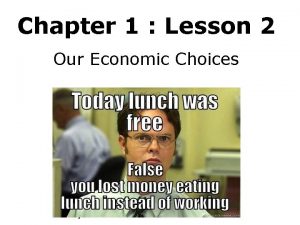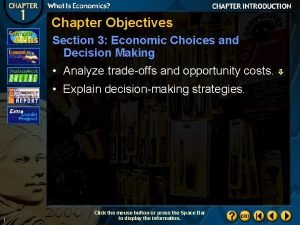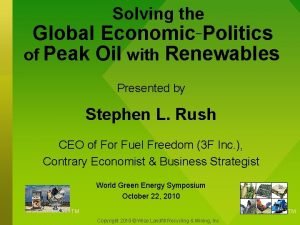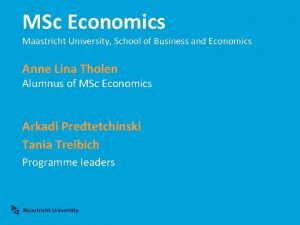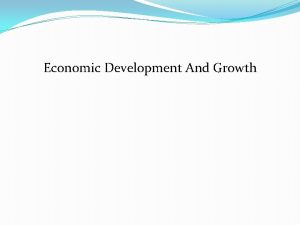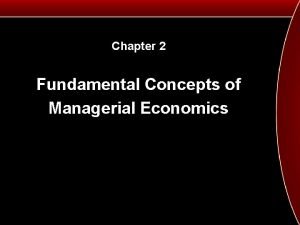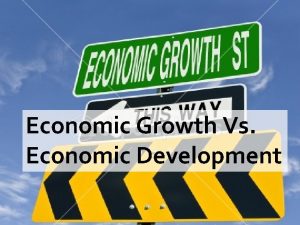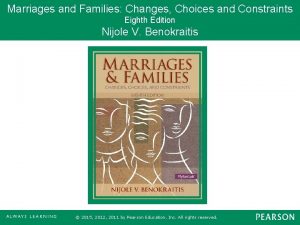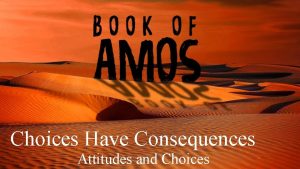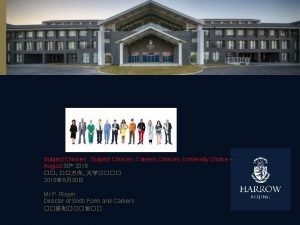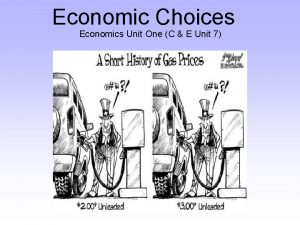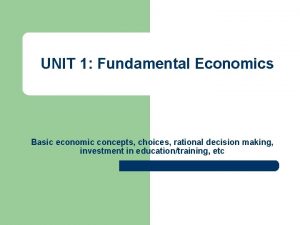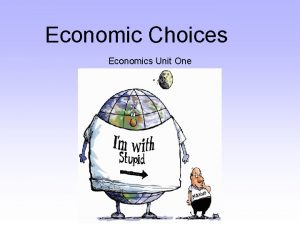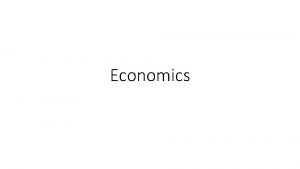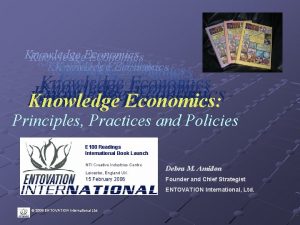Unit 7 Economics and Choices The Economic System









- Slides: 9

Unit 7: Economics and Choices The Economic System at Work

Economic Systems Economics = study of how we make decisions in a world w/ limited resources o System society uses to produce & distribute goods/services Econ systems needed & vary all over world o Want-satisfaction chain = goods/services to satisfy wants o Competition = main factor in setting prices

Types of Economic Systems Traditional Economy – based on traditions, culture, history o Grow / make own goods to survive o Barter system / trade o Common in undeveloped countries Command Economy – government makes all decisions o Govt owns all factors of production & natural resources o Communist govts (Cuba & N. Korea)

Types of Economic Systems Market Economy – decisions made by individuals o Personal needs/interests put 1 st o Based on freedoms & rights o Little/no govt interference or regulation o Free market – right to buy & sell goods as you choose o Most countries

Market Economy Based on 5 American economic freedoms o Freedom to compete o Freedom to own property o Freedom to buy & sell o Freedom of workers to compete for jobs o Freedom to earn profits Desire to make profit – $ left after expenses – is essential for market economy Competition for resources

Market Economy Supply & Demand: o Most basic of all economic principals o Usually lead to price changes o Law of supply – if price goes up, supply goes up; if price goes down, supply goes down o Law of demand – if price goes up, demand goes down; if price goes down, demand goes up o Want to reach a balance or equilibrium price

Market Economy Free enterprise: bus. operate w/ little govt interference o No limit on profits / no success guarantee o Competition important for low prices, high quality o Innovation – new ideas o Patent – exclusive rights to sell invention for certain time o Copyright – exclusive right to publish/sell writing, art, music Capitalism: productive resources privately owned o Driving force of American economy o Encourages $ investment for financial gain o Freedom to buy/sell as you please o Benefits society as a whole

Market Economy Monopolies: only 1 company selling product/service o Usually banned in most market economy countries o Price fixing or gouging can happen o Quality control is problem o Natural monopolies are legal – certain public utilities

U. S. Economic System Mixed economy – combines elements of different economic systems o Businesses have freedom, but have certain regulations to meet • Ex: minimum wage laws, discrimination laws American business o Large businesses came about in late 1800 s o Big business essential to American economy o Big businesses join together = conglomerates
 Economic systems lesson 2 our economic choices
Economic systems lesson 2 our economic choices Chapter 1 section 3 economic choices and decision making
Chapter 1 section 3 economic choices and decision making Economic choices
Economic choices School of business and economics maastricht
School of business and economics maastricht Economic growth and development
Economic growth and development Elements of mathematical economics
Elements of mathematical economics Fundamentals of managerial economics
Fundamentals of managerial economics Economic growth vs economic development
Economic growth vs economic development Unit 10, unit 10 review tests, unit 10 general test
Unit 10, unit 10 review tests, unit 10 general test Family of orientation
Family of orientation
